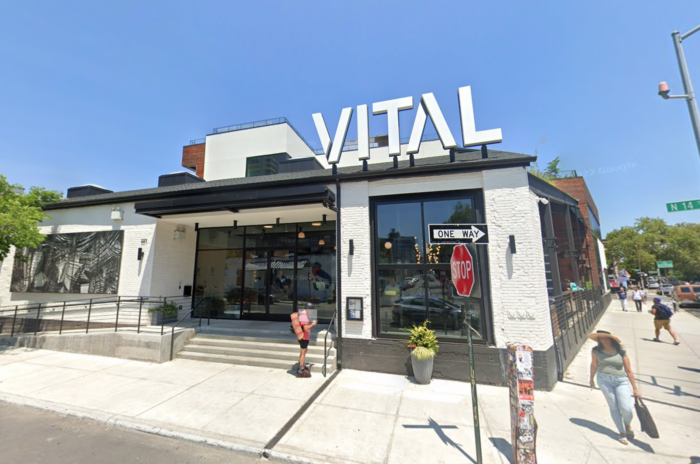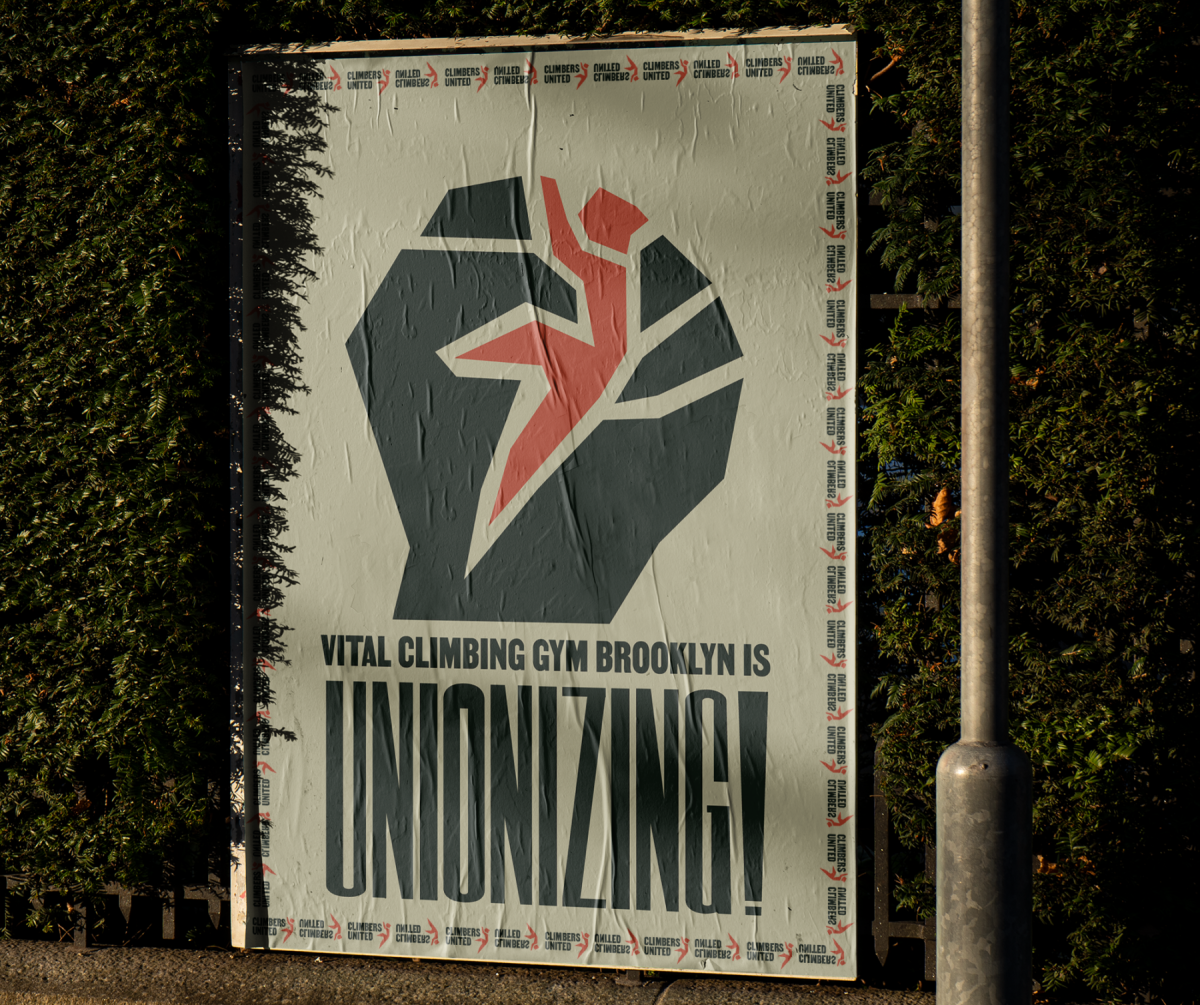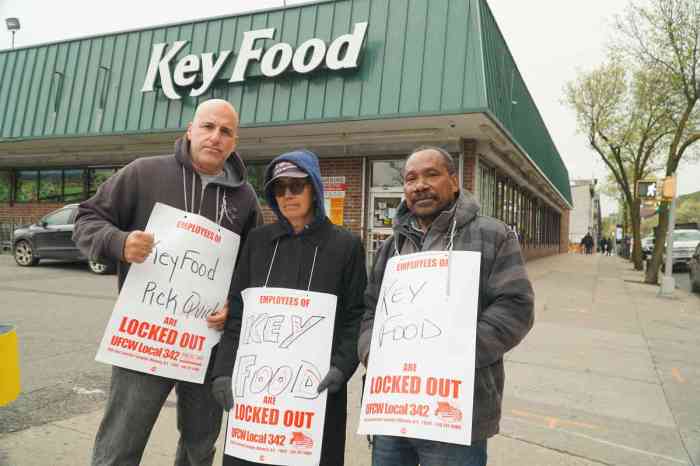Over 100 employees at Brooklyn’s popular Vital Climbing Gym have begun the process of unionization to work to ensure that employees’ needs are being met.
Last month, employees went to Vital bosses to request the company to formally and voluntarily recognize the formation of a union — but the request was ultimately denied, forcing employees to take a vote instead.
Vital — which has locations in Manhattan, Brooklyn and in California — employs a large number of part-time workers who do not enjoy the same benefits or pay as full-time employees would, workers said.
Therefore, many of the demands the employees hope to see met through unionization include improvements to pay to accommodate for high cost of living, more established boundaries when it comes to surveillance of employees and health and safety improvements like more places for workers to sit during shifts, and health insurance access.
“From the time that I started, there was kind of this idea that, you know this isn’t really that great of a job and it’s really fun when you start out but over time it kind of wears on you and there’s this sense that we’re not valued as much as we would like to be,” said Vital employee and unionization leader Aaron Vanek.“We’re in a position where we know that we want to make a change [and] we have the support to do it. This is a great time to do this kind of stuff and I think it’s important in the industry.”
Employees at Brooklyn’s Vital 45,000 square-foot location in Williamsburg decided to work towards unionization after workers at the Manhattan location successfully formed Climbers United with the aid of affiliation labor union Workers United, becoming one of the first climbing unions in the country.
Vital was first started in 2010 by founders David Sacher and Nam Phan who on Vital’s website pride themselves on doing “a lot of the work themselves” when it came to constructing the gym and say that they are primarily financed by an investment team of “ordinary people who believe what we are doing and have invested their personal savings with us”.
At time of publication, neither founders nor management responded to requests for comment.
The investment team, they claim, is composed of current and former members, friends and even staff members.
Throughout its website, Vital is marketed as a progressive and inclusive space, with one founder telling Climbing Business Journal that “climbing gyms have become community centers and we’re there to serve the community.”
Despite this cozy verbiage, employees have said that the gym — which costs $1,450 for an annual membership — would be out of reach for them financially if membership wasn’t included in employment benefits.

This cultivated image of inclusivity and community is something that many employees haven’t experienced.
“[You can] have a nice sort of casual climb and we do genuinely enjoy each other’s company, but I think that when you get into some of these larger corporate gyms that have been emerging like Vital, you sometimes begin to run into a bit of friction where there’s a desire to maintain this casual friendly relationship between management and workers while also needing to implement things like disciplinary action and management and rules,” said unionization leader Varun Mehta. “I think the line was starting to feel a bit confusingly obscured for us so unionization offers us a better delineation between the two.”
The rock climbing industry is also a relatively new one, so with little to no past frame of reference for operations, it becomes difficult to simultaneously maintain an air of casual fun while also maintaining boundaries that empower workers.
“I think when an industry starts to become more profitable and bigger players emerge, it’s necessary to have a voice for the people that are running those places and making the spaces what they are, which is what they are making money off of for sure,” said Vanek.
While Vital bosses have chosen not to formally recognize the union, employees have moved forward by successfully filing cards for employees to be recognized with the National Labor Relations Board. Currently, the 104 employees at Vital’s Brooklyn location are awaiting the results of a vote to decide whether or not to certify Workers United as union representatives.
Following the results of the vote, unionization leadership will conduct an internal process of meeting with fellow employees to solidify and streamline demands to ensure all employees have their needs met before bargaining with management to finalize these changes. This process can take months, which Vanek said can be an obstacle for the unionization effort.
“Companies will try and stretch them out to kind of drain momentum and that’s what’s been happening at the Manhattan gyms as well,” Vanek said. “They’ve been having bargaining sessions since I think October or November and are still not there.”
In order to combat this, the group has utilized social media to keep employees and the public informed and to anticipate or plan future moves.
“We have to alert the public to different actions that we might need to take in regards to negotiations,” Mehta said. “Like a strike which — hopefully it never comes to that — but if it did, it would definitely be important that we are able to communicate with people who attend the gym super quickly.”
The group also hopes that their efforts to unionize encourage other climbing gyms across the country to also pursue better working conditions.
“Many people at this gym want this to happen,” said Mehta. “That also then becomes a statement that we would hope could echo across the climbing gym industry, especially again with how prominent and profitable Vital is.”
To learn more about unionization efforts, visit Climbers United Union’s Instagram page.
























